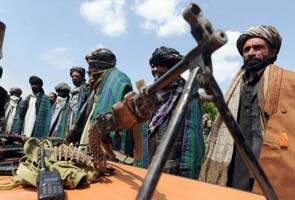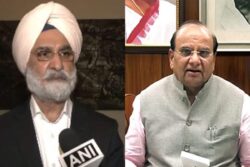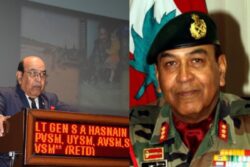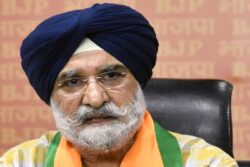US thought Taliban had nuclear bomb in 2009: Book

Washington: US President Barack Obama confronted the ultimate security nightmare early in his administration — the possibility that the Taliban had acquired a nuclear bomb, according to a new book published on Tuesday.
The book, “Confront and Conceal” by New York Times Chief Washington correspondent David Sanger, says Obama was told in a dramatic Oval Office meeting in early summer 2009 of “ambiguous” evidence supporting such a fear.
 Intercepted conversations between the members of the Tehreek-e-Taliban Pakistan (TTP) led intelligence agencies to warn the group could have a bomb, and the CIA picked up “chatter” of possible attacks on US cities, the book said.
Intercepted conversations between the members of the Tehreek-e-Taliban Pakistan (TTP) led intelligence agencies to warn the group could have a bomb, and the CIA picked up “chatter” of possible attacks on US cities, the book said.
But Sanger reports that no one in the intelligence community could be sure about the authenticity of the threat.
Some seasoned analysts believed that any danger was more likely to be posed by nuclear material combined into a radiological or “dirty” bomb.
Other officials in US spy agencies believed that there were serious doubts about the intelligence, but no one was willing to ignore the fears, amid concern about the security of Pakistan’s fast growing nuclear arsenal.
Senior Obama administration officials have previously confided that the fear of a terrorist or insurgent group acquiring nuclear materials is the national security threat most likely to keep them awake at night.
Obama has made halting proliferation a signature of his presidency and was instrumental in the debut of a new global nuclear security summit, which took place for the second time in Seoul in March.
“There are still too many bad actors in search of these dangerous materials and these dangerous materials are still vulnerable in too many places,” he said in Seoul, warning that it would take just a small amount “to kill hundreds of thousands of innocent people.”
According to Sanger’s book, Obama decided that with the 2009 case, he could not take any chances and dispatched a nuclear detect and disablement team to the region, though not directly to Pakistan, in case it was needed.
After several days of tension, Sanger wrote, the threat dissipated. Pakistan surveyed its arsenal and reported that no nuclear components were missing.
One school of thought about the incident suggested that Taliban members had been hoaxed and bought material from a third party that was useless in the manufacture of nuclear weapons.
Other officials believed that the US National Security Agency (NSA) had misunderstood the dialect of Taliban members on the intercepts, and been mislead into believing their worst fears, the book said.
However, Sanger quoted one official as saying that facing a possible nuclear crisis so early in Obama’s Presidency “created a lasting impression on all of us.”
Since the incident, US officials have held regular meetings with members of Pakistan’s nuclear establishment in neutral locations like London and Abu Dhabi to discuss nuclear safety, Sanger wrote.





